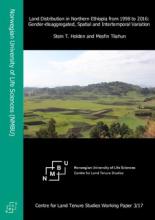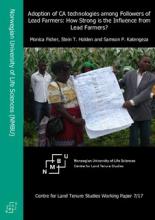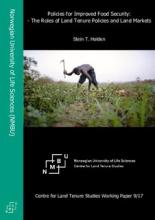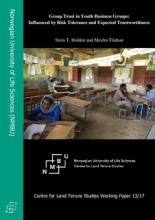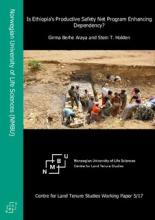Land Library
Bienvenue dans la bibliothèque du Land Portal. Explorez notre vaste collection de ressources en libre accès (plus de 74 000), comprenant des rapports, des articles scientifiques, des articles de recherche, des publications évaluées par des pairs, des documents juridiques, des vidéos et bien plus encore.
/ library resources
Showing items 28 through 36 of 127.Summary report of Mekong Region Land Governance (MRLG)'s online dialogue on 'Recognition of Customary Tenure in the Mekong Region' held in 2017, containing justification for the dialogue, key take-aways, next steps and recommended resources, published by MRLG in 2017.
For the past decade, GIZ has supported participatory land use planning, land registration and land titling as a vehicle for sustainable rural development in Lao PDR.
This study utilizes land registry data from the First and Second Stage Land Registration Reforms that took place in 1998 and 2016 in sampled districts and communities in Tigray region of Ethiopia.
This study investigates how the Farmer-to-Farmer-Extension (F2FE) system with lead farmers and follower farmers influences adoption of Conservation Agriculture (CA) technologies in Malawi.
Youth unemployment and migration are growing challenges that need more political attention in many countries, particularly countries with rapid population growth and economic transformation.
We use four waves of panel data from Northern Ethiopia to investigate the link between Food for Work (FFW) participation and the diversity of food consumption and production.
This chapter is written for the European Commission for a book to be published by Springer on The Role of Smallholder Farms in Food and Nutrition Security. The author takes full responsibility for the content.
We analyzed lab-in-the-field trust and risk experiment with 1125 youth in 119 youth groups established as primary cooperatives to develop a joint business. The experiments were implemented using classrooms in local schools as field labs.
Although development intervention programs can have far-reaching impacts beyond their stated objective, there have been few careful studies of unintended outcomes of such programs.


